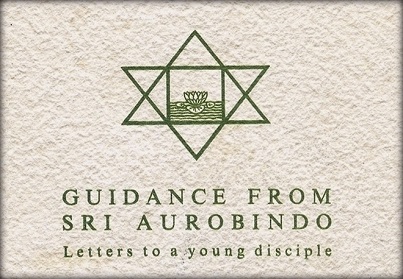
In order to bring down the higher knowledge, has one not to give up all one’s mental desires and satisfactions?
Yes, the human mind’s activities very often come much in the way.
Nine days ago, you pointed out to me a shade of ego in the tone of my expression of knowledge. Since then I have become attentive to that point. Do you find now some improvement?
Yes.
Usually it is my mind that determines the subject on which I write. But now I don’t want the mind to do it, and suggest rather that you fix a subject on which the knowledge may express itself.
No. The knowledge and the subjects on which it works have to come from within.
You wrote, “It may have been a partial knowledge, but badly expressed by the mind.” How did the knowledge become erroneous in the act of transmission?
It comes through the mind, so the mind can always modify its expression unless it is entirely and absolutely still.
About my mental defects you said, “They are more likely to go by an increasing capacity coming from above.” Did they not disappear when the knowledge was descending?
They did not disappear — they were only quiescent. However, your mental capacity has already increased by what knowledge came. For instance there is a great superiority to X in your understanding power which was not there at the beginning.
The Mother’s Force seems to be pressing strongly on my forehead. Is the resistance at the throat-centre still very strong?
It has evidently diminished — otherwise so much knowledge would not be coming through.
At the Pranam ceremony I am unable to fathom the mystery of the Mother’s working: what she gives and how I receive it. What is the inner meaning of her touch on my head or her look into my eyes?
You have to develop the inner intuitive response first — i.e. to think and perceive less with the mind and more with the inner consciousness. Most people do everything with the mind and how can the mind know? The mind depends on the senses for its knowledge.
Sometimes it happens that the flow of knowledge starts from a certain kind of realisation or a deeper perception. But afterwards it develops and runs to other things which have no connection with the fundamental realisation or perception.
Yes, it happens like that. A touch of realisation is enough to set the higher mind knowledge or the illumined mind knowledge flowing.
While writing with the help of the knowledge, why do I so often write about lower movements rather than about higher things?
It is the things which are practically necessary that the knowledge brings at the moment, I suppose.
When one forgets oneself entirely and moves only in the Mother’s consciousness, one actually feels whatever one thinks. This statement may appear strange to the limited human mind. But the experiences when sufficiently developed will prove its truth.
Do you mean by “one actually feels whatever one thinks” that instead of knowing things only by thought one knows them by direct contact in the consciousness, a sort of concrete spiritual sense?
Yes. I meant that.
When the knowledge comes strongly from above, it very often brings its own language and the defects of the instrument are overcome. There are people who knew very little but when the knowledge began to flow they wrote wonderfully — when it was not flowing, their language became incorrect and ordinary.
How is it that when the knowledge was descending in me I hardly felt myself inspired? It seemed like natural phenomena.
The knowledge is not inspiration. I repeat that you did not write of it at that time as natural phenomena but as knowledge coming down. Your mind at the time was quite incapable of such knowledge or of expressing it as you did.
No poet feels his poetry as a “normal phenomenon” — he feels it as an inspiration — of course anybody could “make” poetry by learning the rules of prosody and a little practice. In fact many people write verse, but the poets are few. Who are the ordinary poets? There is no such thing as an ordinary poet.
Thought and expression always give one side of things; the thing is to see the whole but one can express only a part unless one writes a long essay. Most thinkers do not even see the whole, only sides and parts — that is why there is always conflict between philosophies and religions.



About Savitri | B1C3-11 Towards Unity with God (pp.31-33)